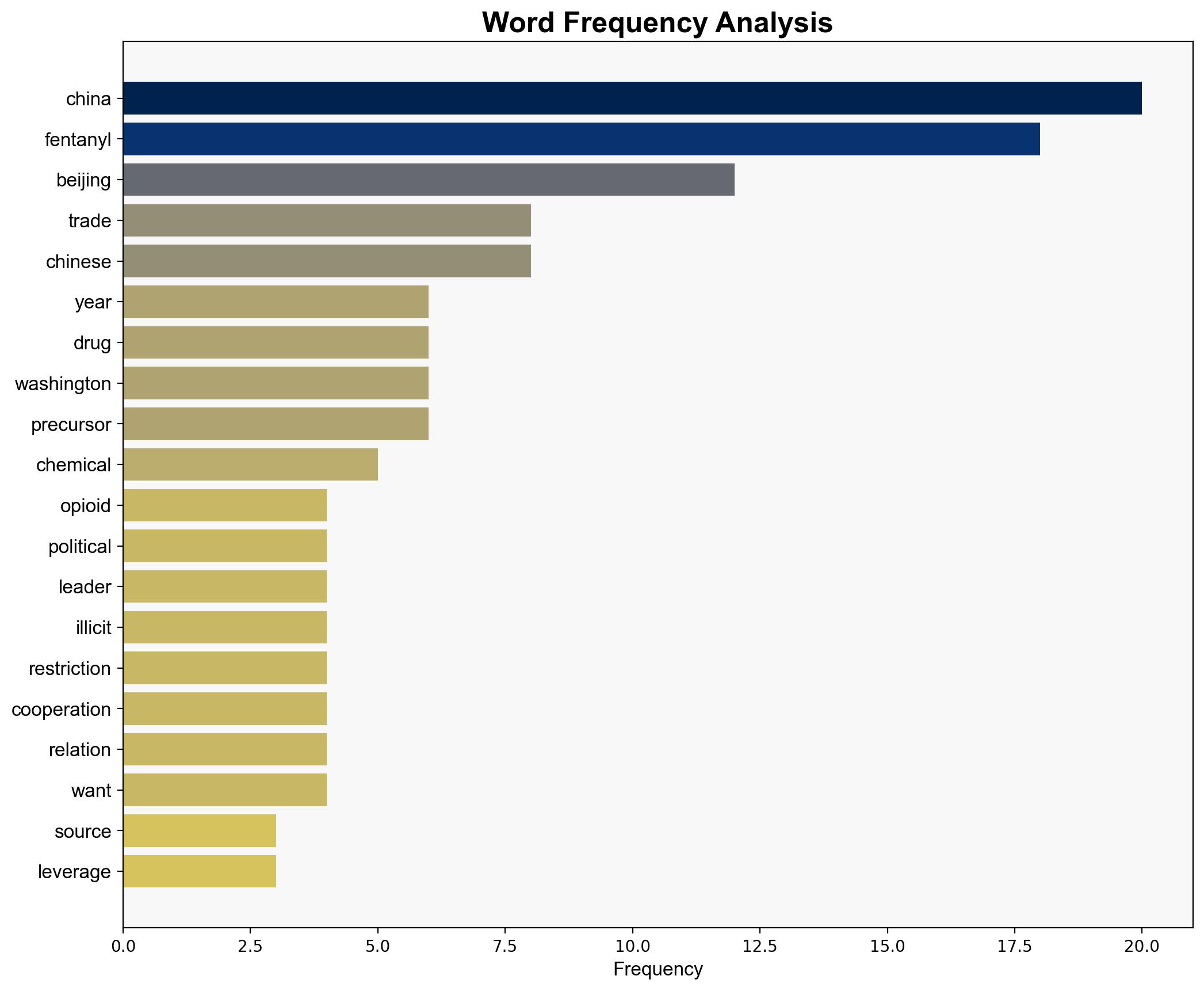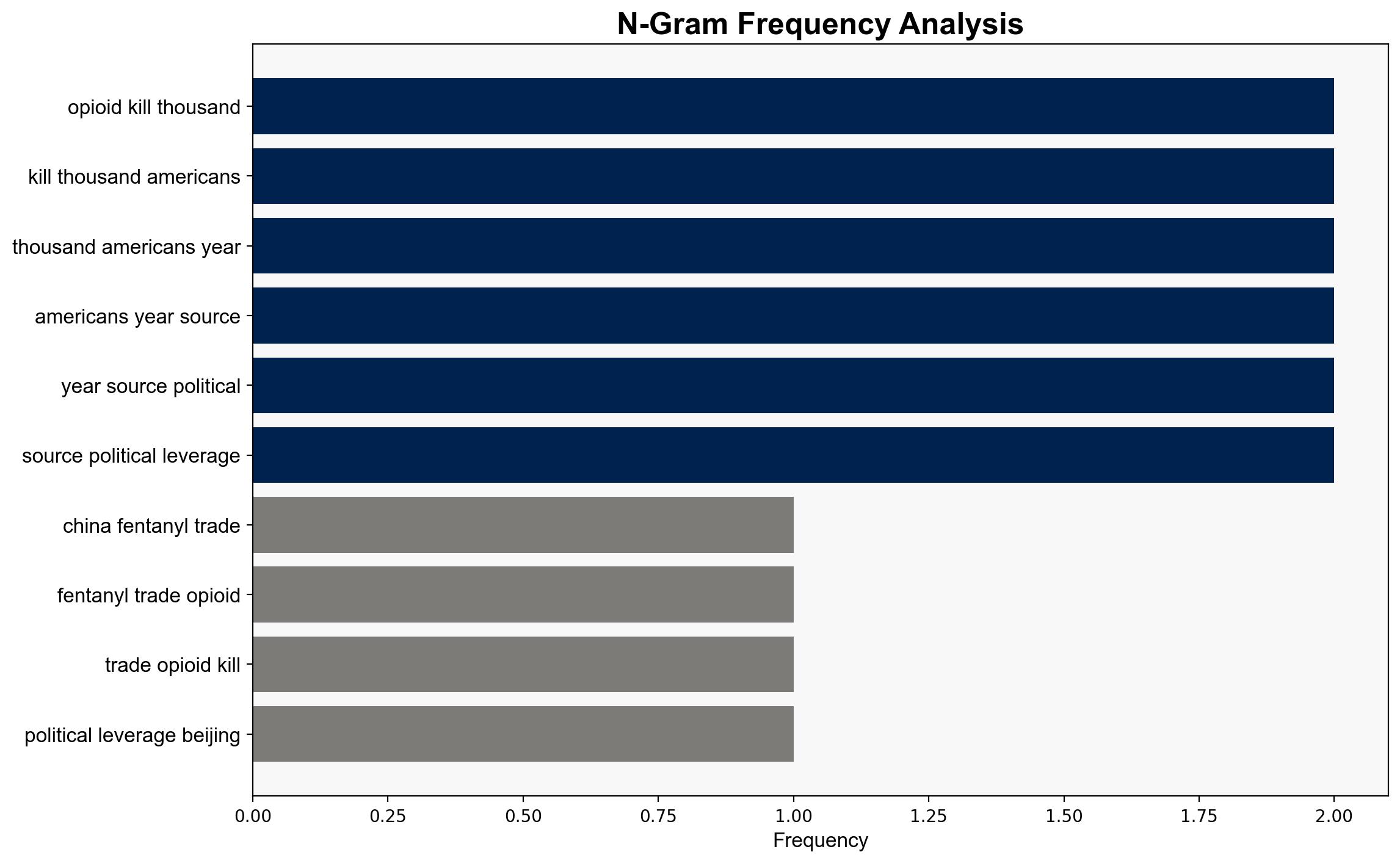Why China Wont Stop the Fentanyl Trade – The Atlantic
Published on: 2025-07-24
Intelligence Report: Why China Won’t Stop the Fentanyl Trade – The Atlantic
1. BLUF (Bottom Line Up Front)
The most supported hypothesis is that China uses the fentanyl trade as a strategic leverage point in its broader geopolitical negotiations with the United States. This assessment is made with moderate confidence due to the complexity of international relations and the lack of direct evidence of state-sponsored drug trade facilitation. Recommended action includes enhancing multilateral diplomatic efforts and increasing intelligence-sharing with regional partners to counteract the illicit drug trade.
2. Competing Hypotheses
1. **Hypothesis A**: China deliberately allows the fentanyl trade to persist as a form of political leverage against the United States, using it as a bargaining chip in broader geopolitical negotiations.
2. **Hypothesis B**: The persistence of the fentanyl trade is primarily due to China’s internal regulatory challenges and the adaptability of criminal networks, rather than a calculated geopolitical strategy.
Using ACH 2.0, Hypothesis A is better supported by the evidence of China’s fluctuating cooperation based on its relations with the U.S. and the strategic use of trade restrictions. Hypothesis B is less supported due to the lack of substantial evidence indicating that internal regulatory failures are the primary cause.
3. Key Assumptions and Red Flags
– **Assumptions**:
– Hypothesis A assumes China has a coherent strategy to use the drug trade as leverage.
– Hypothesis B assumes China’s regulatory system is incapable of controlling the trade effectively.
– **Red Flags**:
– Inconsistent data on China’s enforcement actions.
– Potential bias in attributing strategic intent to China’s actions without direct evidence.
– **Blind Spots**:
– Limited insight into the internal decision-making processes of Chinese regulatory bodies.
4. Implications and Strategic Risks
– **Geopolitical**: Continued tension between the U.S. and China could escalate if the drug trade is perceived as a deliberate destabilization effort.
– **Economic**: Potential for increased tariffs or sanctions impacting global markets.
– **Psychological**: Domestic pressure on U.S. leadership to take decisive action could lead to hasty policy decisions.
5. Recommendations and Outlook
- Enhance diplomatic engagement with China to address the fentanyl issue directly, possibly through a multilateral framework involving other affected nations.
- Increase intelligence-sharing and cooperation with regional partners to disrupt the supply chain of precursor chemicals.
- Scenario Projections:
– **Best Case**: China agrees to stricter enforcement and cooperation, leading to a significant reduction in fentanyl-related deaths.
– **Worst Case**: Relations deteriorate further, leading to economic and diplomatic retaliation.
– **Most Likely**: Incremental progress with periodic setbacks based on broader U.S.-China relations.
6. Key Individuals and Entities
– Amanda Hsiao
– Joe Biden
– Nancy Pelosi
– Marco Rubio
7. Thematic Tags
national security threats, geopolitical strategy, international drug trade, U.S.-China relations




